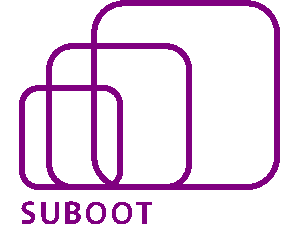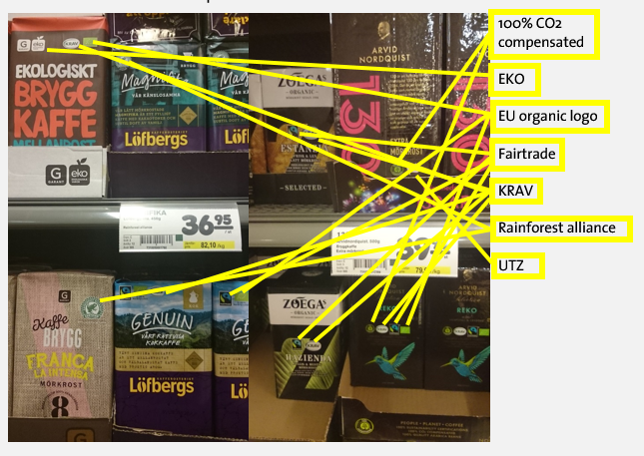SuBoot
Sustainability Bootstrapping About the project
About the project
a system to massively collect life cycle and sustainability data from primary sources, and make it available in supply chains and to end users: empowering consumers by providing life cycle sustainability information at the point of sale.
Today the global food chain is responsible for major environmental impacts, e.g. it emits almost one third of total emissions of greenhouse gases. In order to meet the huge challenge of substantially decreasing these impacts businesses and private consumers in the food supply chain need product specific sustainability information to change their behavior and increase their sustainability performance. The vision of this project is to help halve the climate impact of Swedish food consumption by 2035 and to boost Swedish competitiveness by enabling proactive producers to really stand out.
The solution that SuBoot offers
Overall summary of solution
An IT system will be developed that will be used by actors in the food supply chain to produce and communicate quantitative product environmental and social footprints (ESF) to their customers. One example of an ESF subset is a carbon footprint. The ESFs will be used in business-to-business (B2B) relations, but also in business-to-consumer (B2C) relations, e.g. retail to consumer or foodservice to diner.
Technical solution
The actor uses the IT system to calculate the environmental impact of her/his own activities and adds the ESFs of the purchased products from the suppliers. When ESFs are unavailable, data on average production will be used in a transparent way. The system will provide actor specific data, relevant background data and average production data by using novel digitalization technology, which is one of the key features of the system. The actor wants to purchase products with as small ESFs as possible in order to lower its own ESF, and thus a pull for good products is created. All ESFs will be linked to products by using traceability technology, e.g. barcodes, which are mandatory for packaged food products. Furthermore, the ESFs are digital, which allows them to be visualized and tailored to the specific need.
Stakeholder engagement
Broad stakeholder engagement is a prerequisite and is made possible by this project. Many different actors in the food chain need to be on board, as well as policy makers who can support users but also make use of ESFs in tracking progress and providing economic incentives for change (e.g. tax on products with high footprint). An expressed need from industry is that a system like this should be applicable not only for large companies but also for SMEs. Food producers already have customers asking for this data and they also state that a first agreement on what impacts should be communicated is important, as well as quality assurance of ESFs.
Visualization and communication of ESFs
The actors in the chain will visualize the ESFs in a multitude of ways in order to change purchase behavior, and nudging and the quantified self concepts are key to achieve the intended change: Retailers will communicate with printed information and interactive screens in stores, receipts, apps, online shopping/recipes etc.
Food service will visualize ESFs on menus. B2B actors will integrate ESFs into apps and marketing channels. By enabling all these tailor made applications, concrete actions on how to reduce impacts can be undertaken and progress tracked, for producers, retailers and consumers.
Project partners
With exception of GreenDelta, all project partners are from Sweden:
GreenDelta in the project
We are responsible for the data management in the project, for the overall concept, and for the implementation of the data nodes.
The situation today
An overwhelming amount of different labels, even for the interested end consumer …
… each with a partial view on sustainability.
Links and resources
Project duration: 2017-2018 (first phase).
Project funded by Vinnova. Original Swedish project name: Nationell samverkan för hållbara och konkurrenskraftiga livsmedelskedjor
Presentations about the SuBoot idea & concept:
Ciroth, A., Cinelli, M., Gjorgjikoski, V., Hildenbrand, J., Kocev, D. (2015): SuBoot – Sustainability Bootstrap project, presentation, Indian Life Cycle Management Conference 2015 (ILCM 2015) in New-Delhi, India, 14-15 September 2015.
 About the project
About the project